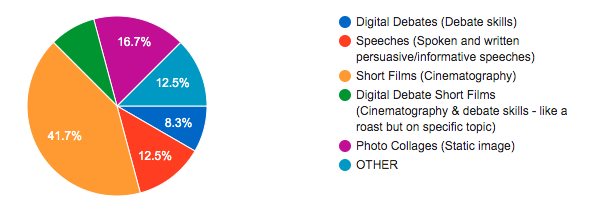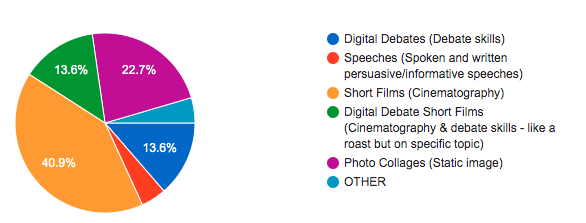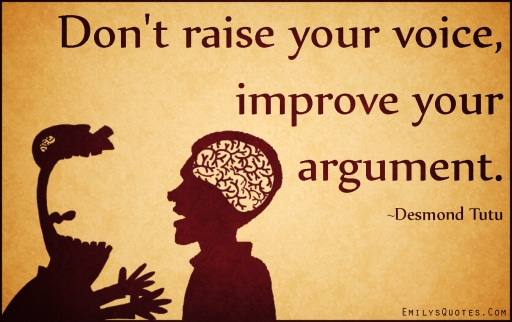8F2 English
Section outline
-
Term 1: Week 1

Welcome!
Hello and welcome back 8F2! I hope you all had a fantastic holiday and I can't wait to hear all about it!
I look forward to teaching you again this year as we move towards an enriching and rewarding 2020. This year, English classes will involve building on what we learnt last year as well as an exploration of new and exciting topics.
Our context for this term is "Kia Kaha" - Stand Strong! This, to me, means fostering positive relationships at school and tackling social issues. In addition, we will be looking at conflict resolution and standing together in the face of adversity.
The overall working plan for English this term will look something like this:*
- Revisiting formal essay writing: How much do we remember? What do we need to work on going into E-asTTle testing at the end of the year? (2 WEEKS)
- Poetry analysis and creation: A broad look at the types of poetry, an exploration of the language features and techniques used to create meaningful poetry and then a few exercises in creating poetry of our own using our new skills. (2-3 WEEKS)
- Creative writing and reading creative pieces: A more advanced study on the formulation of creative writing building from last year. I will explain this in more detail in person. (4-5 WEEKS)
- Potential Assessment for this term: An 850(MAX)word short story on a social issue with a conflict resolution. I will likely be assessing how well you can use the conventions of story writing (what we will learn) to convey (express) an important message or moral.*
* As you guys well know, I take into account your opinions and interests when I design a plan for the term so if most of you would rather not do a creative short story, there will be other options we can discuss and explore.
Success Criteria for Term 1: We are learning to...
1) Recognize areas of personal development with formal writing and answer the question: "What do I need to do/change to improve my writing?"
- Recall what PEEL paragraphs are and how to write them
- Recall the Introduction Triangle and using it to start an essay
- Recall and use the Essay Checklist format
2) Analyse at least 3-4 different forms of poetry and to determine what made the poem successful/meaningful
3) Understand the meaning of the author's or poet's purpose
4) Create our own pieces of poetry using the knowledge we have gained through poetry analysis
5) Name the conventions and recognize the language features and techniques used in creative writing - using these to create our own short stories
6) Draft short story plans and edit our own writing
Activities for week 1:
Monday (S4) - ADMIN Day
Wednesday (S3) - Welcome back! Plan for term 1 2020 and Octagon acrostic poem
Thursday (S1) - Waitangi Day
-
Term 1: Week 2


Plan: Revisiting Formal Writing
It's week two already! Hopefully, you guys are settling back into the routine of being at school and are ready to put pen to paper for our first topic in English for this year - Formal Writing.
Our context for this term is "Kia Kaha" - Stand Strong! This, to me, means fostering positive relationships at school and tackling social issues. In addition, we will be looking at conflict resolution and standing together in the face of adversity.
Success Criteria for Term 1: We are learning to...
1) Recognize areas of personal development with formal writing and answer the question: "What do I need to do/change to improve my writing?"
- Recall what PEEL paragraphs are and how to write them
- Recall the Introduction Triangle and using it to start an essay
- Recall and use the Essay Checklist format
2) Analyse at least 3-4 different forms of poetry and to determine what made the poem successful/meaningful
3) Understand the meaning of the author's or poet's purpose
4) Create our own pieces of poetry using the knowledge we have gained through poetry analysis
5) Name the conventions and recognize the language features and techniques used in creative writing - using these to create our own short stories
6) Draft short story plans and edit our own writing
Activities:
Monday (S4) - Revisiting formal writing: Draft writing introduction and PEEL paragraph on "Should the school holidays have been longer?" OR "MHJC should have more school trips" + pair share and review (These are to be submitted by the end of this lesson)
Wednesday (S4) - Brain teaser activity, feedback on introduction and paragraph - what do we need to work on this year? Second attempt at writing the introduction and paragraph using personalized feedback (also handed in at the end of the lesson)
Thursday (S2) - Writing prompt (10mins), book suggestions for year 8, breaking down the E-asTTle writing marking criteria - how should we be improving? Second and third PEEL paragraphs: strong, persuasive and impactful
-
Term 1: Week 3


Plan: Formal Writing continued
Our context for this term is "Face Off Challenge!" This, to me, means fostering positive relationships at school and tackling social issues whilst overcoming challenges. In addition, we will be looking at conflict resolution and standing together in the face of adversity.
Success Criteria for Term 1: We are learning to...
1) Recognize areas of personal development with formal writing and answer the question: "What do I need to do/change to improve my writing?"
- Recall what PEEL paragraphs are and how to write them
- Recall the Introduction Triangle and using it to start an essay
- Recall and use the Essay Checklist format
2) Analyse at least 3-4 different forms of poetry and to determine what made the poem successful/meaningful
3) Understand the meaning of the author's or poet's purpose
4) Create our own pieces of poetry using the knowledge we have gained through poetry analysis
5) Name the conventions and recognize the language features and techniques used in creative writing - using these to create our own short stories
6) Draft short story plans and edit our own writing
Activities:
Monday (S4) - P.E.E.L Paragraphs and essay writing sample
Wednesday (S3) - Reviewing, editing and feedback on essay writing sample
Thursday (S2) - Reading time, FreeRice activity and second writing sample
-
Term 1: Week 4

Plan: Introduction to Poetry Analysis & Student Led Conferences
Our context for this term is "Face-Off Challenge!" This, to me, means fostering positive relationships at school and tackling social issues whilst overcoming challenges. In addition, we will be looking at conflict resolution and standing together in the face of adversity.
Success Criteria for Term 1: We are learning to...
1) Recognize areas of personal development with formal writing and answer the question: "What do I need to do/change to improve my writing?"
- Recall what PEEL paragraphs are and how to write them
- Recall the Introduction Triangle and using it to start an essay
- Recall and use the Essay Checklist format
2) Analyse at least 3-4 different forms of poetry and to determine what made the poem successful/meaningful
- Recall, name and identify language features in poetry
- List the language features in SHAMPOO
- Comment on the meaning and personal interpretation of a poem
3) Understand the meaning of the author's or poet's purpose
- Use understanding of SHAMPOO and forms of poetry to determine poet's purpose
- Analyse and discuss the importance of cultural poetry
4) Create our own pieces of poetry using the knowledge we have gained through poetry analysis
5) Name the conventions and recognize the language features and techniques used in creative writing - using these to create our own short stories
6) Draft short story plans and edit our own writing
Activities:
Monday (S4) - Writing prompt, reacquaintance (revisiting) with SHAMPOO language features and analysing Sylvia Plath's "Metaphors"
Wednesday (S3) - Freestyle poetry prompt, introduction to SMILE method of poetry analysis + Maya Angelou's "Caged Bird" and Tupac Shakur's "The Rose that Grew from Concrete"
Thursday (S2) - Haiku writing prompt, SMILE analysis on "The Poison Tree" by William Blake + PEEL paragraph
Reminders/Homework:
Please Complete Reading Plus homework. Friday is a Teacher Only Day (TOD) for Student-Led conferences
-
Term 1: Week 5


Plan: Poetry Analysis & Spoken Word
Our context for this term is "Face-Off Challenge!" This, to me, means fostering positive relationships at school and tackling social issues whilst overcoming challenges. In addition, we will be looking at conflict resolution and standing together in the face of adversity.
Success Criteria for Term 1: We are learning to...
1) Recognize areas of personal development with formal writing and answer the question: "What do I need to do/change to improve my writing?"
- Recall what PEEL paragraphs are and how to write them
- Recall the Introduction Triangle and using it to start an essay
- Recall and use the Essay Checklist format
2) Analyse at least 3-4 different forms of poetry and to determine what made the poem successful/meaningful
- Recall, name and identify language features in poetry
- List the language features in SHAMPOO
- Comment on the meaning and personal interpretation of a poem
3) Understand the meaning of the author's or poet's purpose
- Use understanding of SHAMPOO and forms of poetry to determine poet's purpose
- Analyse and discuss the importance of cultural poetry
4) Create our own pieces of poetry using the knowledge we have gained through poetry analysis
5) Name the conventions and recognize the language features and techniques used in creative writing - using these to create our own short stories
6) Draft short story plans and edit our own writing
Activities:
Monday (S4) - Freestyle poetry prompt (Cinquain), introduction to SMILE method of poetry analysis + Maya Angelou's "Caged Bird" + half library session
Wednesday (S3) - Poetry Analysis: Song Lyrics activity and group task
Thursday (S2) - Poetry Analysis using TEEP Charts and PEEL paragraphs "Fire and Ice" by Robert Frost (1920s)
Reminders/Homework:
Please Complete Reading Plus homework.
-
Term 1: Week 6


Plan: Introduction to Creative Writing + Asessment Requirements
Our context for this term is "Face-Off Challenge!" This, to me, means fostering positive relationships at school and tackling social issues whilst overcoming challenges. In addition, we will be looking at conflict resolution and standing together in the face of adversity.
Success Criteria for Term 1: We are learning to...
1) Recognize areas of personal development with formal writing and answer the question: "What do I need to do/change to improve my writing?"
- Recall what PEEL paragraphs are and how to write them
- Recall the Introduction Triangle and using it to start an essay
- Recall and use the Essay Checklist format
2) Analyse at least 3-4 different forms of poetry and to determine what made the poem successful/meaningful
- Recall, name and identify language features in poetry
- List the language features in SHAMPOO
- Comment on the meaning and personal interpretation of a poem
3) Understand the meaning of the author's or poet's purpose
- Use understanding of SHAMPOO and forms of poetry to determine poet's purpose
- Analyse and discuss the importance of cultural poetry
4) Create our own pieces of poetry using the knowledge we have gained through poetry analysis
5) Name the conventions and recognize the language features and techniques used in creative writing - using these to create our own short stories
- List the 7 planning pre-requistites for creative story writing
- Follow and implement narrative structure
- Use and recognize language features in creative texts
6) Draft short story plans and edit our own writing
- Edit and review your own written work
- Peer-review another's written work
Activities:
Monday (S4) - Introduction to Planning Pre-requisites and Narrative structure + story prompt
Wednesday (S3) - SHAMPOO prompt, Integrating language features into writing + group task
Thursday (S2) - Completion of group task and presentation
Reminders/Homework:
Please Complete Reading Plus homework.
-
Term 1: Week 7


Plan: Creative Writing + Assessment Requirements
Our context for this term is "Face-Off Challenge!" This, to me, means fostering positive relationships at school and tackling social issues whilst overcoming challenges. In addition, we will be looking at conflict resolution and standing together in the face of adversity.
Success Criteria for Term 1: We are learning to...
1) Recognize areas of personal development with formal writing and answer the question: "What do I need to do/change to improve my writing?"
- Recall what PEEL paragraphs are and how to write them
- Recall the Introduction Triangle and using it to start an essay
- Recall and use the Essay Checklist format
2) Analyse at least 3-4 different forms of poetry and to determine what made the poem successful/meaningful
- Recall, name and identify language features in poetry
- List the language features in SHAMPOO
- Comment on the meaning and personal interpretation of a poem
3) Understand the meaning of the author's or poet's purpose
- Use understanding of SHAMPOO and forms of poetry to determine poet's purpose
- Analyse and discuss the importance of cultural poetry
4) Create our own pieces of poetry using the knowledge we have gained through poetry analysis
5) Name the conventions and recognize the language features and techniques used in creative writing - using these to create our own short stories
- List the 7 planning pre-requisites for creative story writing
- Follow and implement narrative structure
- Use and recognize language features in creative texts
6) Draft short story plans and edits our own writing
- Edit and review your own written work
- Peer-review another's written work
Activities:
Monday (S4) - Planning Pre-requisites and Narrative structure for creative stories
Wednesday (3) - Creative writing setting using 5 senses - where is your character?
Thursday (S2) - 15mins library + Rising action: how is your character feeling, who are they with? + editing
Reminders/Homework:
Please Complete Reading Plus homework.
-
Term 1: Week 8


Plan: Creative Writing + Online lessons
Our context for this term is "Face-Off Challenge!" This, to me, means fostering positive relationships at school and tackling social issues whilst overcoming challenges. In addition, we will be looking at conflict resolution and standing together in the face of adversity.
Success Criteria for Term 1: We are learning to...
1) Recognize areas of personal development with formal writing and answer the question: "What do I need to do/change to improve my writing?"
- Recall what PEEL paragraphs are and how to write them
- Recall the Introduction Triangle and using it to start an essay
- Recall and use the Essay Checklist format
2) Analyse at least 3-4 different forms of poetry and to determine what made the poem successful/meaningful
- Recall, name and identify language features in poetry
- List the language features in SHAMPOO
- Comment on the meaning and personal interpretation of a poem
3) Understand the meaning of the author's or poet's purpose
- Use understanding of SHAMPOO and forms of poetry to determine poet's purpose
- Analyse and discuss the importance of cultural poetry
4) Create our own pieces of poetry using the knowledge we have gained through poetry analysis
5) Name the conventions and recognize the language features and techniques used in creative writing - using these to create our own short stories
- List the 7 planning pre-requisites for creative story writing
- Follow and implement narrative structure
- Use and recognize language features in creative texts
6) Draft short story plans and edits our own writing
- Edit and review your own written work
- Peer-review another's written work
Activities:
Monday (S4) - Creative writing
Wednesday (3) - Creative writing + online meeting
Thursday (S2) - Creative writing + online meeting
-
TERM 1 HOLIDAYS MOVED FORWARD

-
TERM 1 HOLIDAYS MOVED FORWARD

-
Term 2: Week 1
 Kind of :)
Kind of :)Plan: Creative Writing Assessment + Online school plan
Hi everyone! I will make this brief so it's not too tedious (this means boring) to read. First off, welcome back (sort of)! I hope everyone had a lovely indoor holiday and that we are all feeling well. We have online school for the next two weeks (as far as we know) and so all plans/instructions for the week will be on MH ONLINE. My personal plan for English is for us to continue working on the assessment until it is due (25th April) and then we will be going back to formal writing for 2 weeks. I will keep you posted about the plan after this - as always, I will take your interests into consideration!
Here are my instructions for the week (we have 2 English sessions):
Wednesday (S3) AND Thursday (S2)
1) Choose any ONE of the writing prompts on Google Classroom and complete the task in 10 timed minutes - See full instructions for writing prompts on Google Classroom and the first 2 slides
2) Continue your Creative Writing English assessment which is due on the 25th April -Full instructions for the assessment are on MH Online at the very top of this page, final assessments can be submitted here as well. Email me if you have any questions or if you would like me to check your writing
3) Editing needs to happen by you (not me) - this is a skill necessary you need to develop for all writing. It means you have to read your work and make changes where appropriate. Make sure you have correct punctuation, spelling and grammar.
4) Video conferences for this class will not start until next week and will be held AT LEAST once a week
E-Learning starts again this week so please make sure you are completing your Reading Plus and Maths Buddy - I will be keeping track of this. Try to designate (it means assign) at least one hour on Wednesdays to work on these learning platforms.
Take care, and I'll speak to you soon!
-
Term 2: Week 2

Plan: Digital learning, Google Meeting and Creative writing
Welcome back to the second week of English using Online Learning! Thank you for keeping in contact and emailing me questions so far! It's good to see most of you engaged in your learning even when we cannot meet in person. Without further delay, here is your weekly plan.
Monday (S4)
-
Roald Dahl reading comprehension task - On Google classroom you will find 3 versions of the same story at Easy, Medium and Difficult. Choose whichever level you feel most comfortable reading and then answer the questions about the text. Further instruction can be found on Google Classroom. This task should take about 15-20mins
-
Story comparison - Have a read of 2 of the same short scary story entitled "The Seance". Notice the difference between showing and telling between the two versions, as well as the use of language features in the second. This is to help guide you when writing your own Creative Writing Assessment. This will also be on Google Classroom.
-
Continue writing and editing your Creative Writing Assessment.
Wednesday (S3)
-
Google Meet @ 12PM - catch-up, queries and questions
-
Continue writing and editing your Creative Writing Assessment.
Thursday (S2)
-
Re-write sentences task - On Google Classroom there will be a list of 5 sentences which "Tell" the reader what is happening. I would like you to re-write these so that they "show" the reader instead. Further instructions will be on Google Classroom.
- Continue writing and editing your Creative Writing Assessment (due 25th April - you have had a total of 3 months)
Take care, and I'll speak to you soon!
-
-
Term 2: Week 3
Plan: Formal Writing 2.0
Hello, munchkins! You have survived your first assessment for the year - well done!! I will begin marking these now but please be mindful of the fact I that I have over 120 to mark! It's that part of term again where we go back to Formal Writing for 2 weeks (as previously mentioned, 2 weeks per beginning of term are always dedicated to formal writing in preparation for your end of year test). Without further ado, here is your weekly plan:
Monday (S4)
ANZAC DAY - Public Holiday
Wednesday (S3)
Google Meet @ 11AM - Catch-up, what to expect and guided activity:
- How did the assessments go? Have we handed them in?
- What to expect from the rest of term 2: Puns, Parody and Cinematography OR Draw my days in Quarantine + Photo Collage OR Something else??
- Guided activity: Writing prompt and closed book introduction writing
Thursday (S2)
- Write a PEEL paragraph on the topic "Movies are always better than the book versions". Upload these on Google Classroom
- Watch the following clip on more Advanced PEEL Paragraphs
- Re-write your paragraph, going further in depth with the topic (be more specific) using the example in the clip to guide you
Please remember to complete your Reading Plus and Maths Buddy tasks!
Take care, and I'll speak to you soon!
-
Term 2: Week 4


Plan: Formal Writing: PEEL Paragraphs
Apparently, it's week 4. Hi everyone! If you have a look at the pie chart above, you will see the 8F1 AND 8F2 class votes for a potential plan and context for term 2! Short films won by about 40% for both classes. However, it looks like Photo Collages were a close second. So I'll be thinking up a plan so we can somehow cover both! In the meantime, sit back and relax with more Formal Writing for one more week. Here is your weekly plan:
Monday (S4)
- Imagine there was a "bring your pets to school day" (and we weren't on lockdown). Write a letter to the school with an introduction, 1 PEEL body paragraph AND a conclusion about why you think this would be a good or a bad idea. Make sure you use the conventions of letter writing such as a greeting like "Dear" or "To whom it may concern" and a letter closure like "Thanking you" or "Yours faithfully" for example. Upload these on Google Classroom.
Wednesday (S3)
Google Meet @ 11 AM - Catch-up and guided activity:
- Visual Journals: On Google classroom, submit a single slide with 5 pictures (photos - not from the internet) on what you've been up to or what you do throughout the day.
Thursday (S4)
- Write an essay with an introduction, 3 body paragraphs and a conclusion on the topic "Zoos are worse than human prisons." You will need to research the topic to add depth to your writing and will need to use more than 4 sentences per paragraph. These are to be uploaded to Google Classroom (Due Saturday).
Please remember to complete your Reading Plus and Maths Buddy tasks!
Take care, and I'll speak to you soon!
-
Term 2: Week 5

Plan: Cinematography Revision
Kia ora koutou! Good grief, it is week 5!! We are kicking off this week with cinematography revision - specifically camera angles. From the lovely Kahoot last week, it seemed most of you remember quite a bit BUT we are still a little rusty. Hopefully, this week's activities jog your memory! After this, we will be building on our knowledge from last year and going further in-depth, looking at film creation AND analysis. Without any more waffle, here is your weekly plan:
Monday (S4)
- Revision Google Form Quizlet: Have a go at the cinematography quiz I will send out. This will test your prior knowledge and highlight any gaps we may need to work on. This is a low stress activity, and is meant to be a fun way to see how much you remember so please DO NOT PANIC if you do not remember a lot!
- Watch the following short clip "Dust Buddies" TWICE! The first time, I want you to watch it casually. The second time you watch it, mentally take note of the camera angles you notice being used and WHY they might have been used (their purpose)
Wednesday (S3)
- Watch this clip (it may make you cry!) "Hair Love" and then watch it a second time. During the second time, screenshot 3-5 different camera angles or techniques present in the clip. Put these on a doc and label which techniques they are, then submit these on Google Classroom.
Thursday (S2)
- Choose a music video you like (with no swearing in the lyrics!) and put the link, title and artist(s) on the doc on Google Classroom. Pick out ONE camera angle used in the MV and complete the TEEP Chart on the doc template. An example will also be provided.
Please remember to complete your Reading Plus and Maths Buddy tasks!
Take care, and I'll speak to you soon!
-
Term 2: Week 6

Plan: Cinematography - Catch-up, camera angles & sound effects
Welcome back to school everyone! This week we will be doing some catch-up lessons and building on our cinematography knowledge from last year.
Monday (S4)
- Welcome back!
- Catch-up on Google Classroom activities and English Assessment
Wednesday (S3)
- Sound Effects Recap: Google form activity
- Photograph Scavenger Hunt with different camera angles
Thursday (S2)
- 1/2 Library lesson
- Short film activity: Use the skills you have learnt this week to create a short 30-second video
Please remember to complete your Reading Plus and Maths Buddy tasks!
Take care, and I'll speak to you soon!
-
Term 3: Week 1

Welcome Back Everyone!
Hello and welcome back 8F2! I hope you all had a fantastic holiday and I can't wait to hear all about it!
I look forward to seeing everyone after the holidays as we begin the second half of the year. This term will involve THREE areas of interest within the subject of English. As I've discussed with you all last term, these topics will incorporate your interests - always happy to co-create a learning plan!
Our context for this term is "Around the World in 80 Days". In English, this means having a look at the societal issues from around the globe from a variety of perspectives and critically analysizing them. In addition, we will be looking at conflict resolution and standing together in the face of adversity to some extent.
The overall working plan for English this term will look something like this:
- Formal essay writing: Building on what we have already done at the start of terms 1 and 2 (2 WEEKS)
- Film analysis and critical essays: Recognizing cinema techniques in a film of your choice which tackles a social, political or societal issue. Analysing the film and its message to formulate ideas and create a film critical essay. (3 WEEKS)
- Debating: Introduction to debating structure, skills, research and critical arguments. This will be your third assessment for the year, will be conducted in groups, graded individually and will involve research and public speaking.* (4 WEEKS)
- Formal essay writing 2.0: Revisiting formal writing at the end of this term so we are well prepared for the end of year E-asTTle test. (1 week)
* Groups will be chosen by you unless you guys decide otherwise, topics will be co-decided BUT assigned by me for each group. As always, this is open for discussion.
Success Criteria for Term 1: We are learning to...
1) Recognize areas of personal development with formal writing and answer the question: " What do I need to include to make my argument stronger?"
- Incorporating the use of PEEL paragraphs
- Utilizing the Introduction Triangle and Essay Checklist
- Extending the argument or main points to the outside world
2) Critically analyse film and its message
- Recognize cinematography techniques in a film
- Begin to understand "director's purpose" and why it is important
- Recognize key themes, motifs and symbols
- Analyse characterization and purpose
- Analyse key scenes and interpret what they mean for the character, the film as a whole and the audience
3) Write film analysis essays
- Revisiting TEEP charts
- Introducing PETAL paragraphs and deliberately choosing specific techniques
- Incorporating purpose and techniques into an essay
4) Prepare for a group debate
- Effectively research both sides of an argument
- Communicate respectively with group members
- Organize ideas and arguments
5) Critically argue on a topic of interest
- Practise oral presentation skills: standing tall, speaking clearly at an appropriate pitch, tone and volume
- Building confidence techniques
- Active listening of the opponent group's points
6) Formal essay writing
- Letter writing requirements and techniques
Activities for week 1:
Monday (S4) - Welcome back! Essay writing - having a look at the rubric, practise writing a plan
Wednesday (S3) - Story do now activity, essay writing
Thursday (S2) - Marked essay review - how can we improve on what we wrote earlier in the week?
-
Term 3: Week 2

Formal Writing
Our context for this term is "Around the World in 80 Days". In English, this means having a look at the societal issues from around the globe from a variety of perspectives and critically analysizing them. In addition, we will be looking at conflict resolution and standing together in the face of adversity to some extent.
The overall working plan for English this term will look something like this:
- Formal essay writing: Building on what we have already done at the start of terms 1 and 2 (2 WEEKS)
- Film analysis and critical essays : Recognizing cinema techniques in a film of your choice which tackles a social, political or societal issue. Analysing the film and its message to formulate ideas and create a film critical essay. (3 WEEKS)
- Debating: Introduction to debating structure, skills, research and critical arguments. This will be your third assessment for the year, will be conducted in groups, graded individually and will involve research and public speaking.* (4 WEEKS)
- Formal essay writing 2.0: Revisiting formal writing at the end of this term so we are well prepared for the end of year E-asTTle test. (1 week)
* Groups will be chosen by you unless you guys decide otherwise, topics will be co-decided BUT assigned by me for each group. As always, this is open for discussion.
Success Criteria for Term 1: We are learning to...
1) Recognize areas of personal development with formal writing and answer the question: " What do I need to include to make my argument stronger?"
- Incorporating the use of PEEL paragraphs
- Utilizing the Introduction Triangle and Essay Checklist
- Extending the argument or main points to the outside world
2) Critically analyse film and its message
- Recognize cinematography techniques in a film
- Begin to understand "director's purpose" and why it is important
- Recognize key themes, motifs and symbols
- Analyse characterization and purpose
- Analyse key scenes and interpret what they mean for the character, the film as a whole and the audience
3) Write film analysis essays
- Revisiting TEEP charts
- Introducing PETAL paragraphs and deliberately choosing specific techniques
- Incorporating purpose and techniques into an essay
4) Prepare for a group debate
- Effectively research both sides of an argument
- Communicate respectively with group members
- Organize ideas and arguments
5) Critically argue on a topic of interest
- Practise oral presentation skills: standing tall, speaking clearly at an appropriate pitch, tone and volume
- Building confidence techniques
- Active listening of the opponent group's points
6) Formal essay writing
- Letter writing requirements and techniques
Monday (S4) - English Games
Wednesday (S3) - Library session
Thursday (S2) - SNOW PLANET TRIP
-
Term 3: Week 3
Introduction to Film Analysis
Our context for this term is "Around the World in 80 Days". In English, this means having a look at the societal issues from around the globe from a variety of perspectives and critically analysizing them. In addition, we will be looking at conflict resolution and standing together in the face of adversity to some extent.
The overall working plan for English this term will look something like this:
- Formal essay writing: Building on what we have already done at the start of terms 1 and 2 (2 WEEKS)
- Film analysis and critical essays : Recognizing cinema techniques in a film of your choice which tackles a social, political or societal issue. Analysing the film and its message to formulate ideas and create a film critical essay. (3 WEEKS)
- Debating: Introduction to debating structure, skills, research and critical arguments. This will be your third assessment for the year, will be conducted in groups, graded individually and will involve research and public speaking.* (4 WEEKS)
- Formal essay writing 2.0: Revisiting formal writing at the end of this term so we are well prepared for the end of year E-asTTle test. (1 week)
* Groups will be chosen by you unless you guys decide otherwise, topics will be co-decided BUT assigned by me for each group. As always, this is open for discussion.
Success Criteria for Term 1: We are learning to...
1) Recognize areas of personal development with formal writing and answer the question: " What do I need to include to make my argument stronger?"
- Incorporating the use of PEEL paragraphs
- Utilizing the Introduction Triangle and Essay Checklist
- Extending the argument or main points to the outside world
2) Critically analyse film and its message
- Recognize cinematography techniques in a film
- Begin to understand "director's purpose" and why it is important
- Recognize key themes, motifs and symbols
- Analyse characterization and purpose
- Analyse key scenes and interpret what they mean for the character, the film as a whole and the audience
3) Write film analysis essays
- Revisiting TEEP charts
- Introducing PETAL paragraphs and deliberately choosing specific techniques
- Incorporating purpose and techniques into an essay
4) Prepare for a group debate
- Effectively research both sides of an argument
- Communicate respectively with group members
- Organize ideas and arguments
5) Critically argue on a topic of interest
- Practise oral presentation skills: standing tall, speaking clearly at an appropriate pitch, tone and volume
- Building confidence techniques
- Active listening of the opponent group's points
6) Formal essay writing
- Letter writing requirements and techniques
Activities for week 3:
Monday (S4) - Watching Hidden Figures
Wednesday (S3) - Watching Hidden Figures
Thursday (S2) - Finish Watching Hidden Figures
-
Term 3: Week 4

Film Analysis and Film Essays
Our context for this term is "Around the World in 80 Days". In English, this means having a look at the societal issues from around the globe from a variety of perspectives and critically analysizing them. In addition, we will be looking at conflict resolution and standing together in the face of adversity to some extent.
The overall working plan for English this term will look something like this:
- Formal essay writing: Building on what we have already done at the start of terms 1 and 2 (2 WEEKS)
- Film analysis and critical essays : Recognizing cinema techniques in a film of your choice which tackles a social, political or societal issue. Analysing the film and its message to formulate ideas and create a film critical essay. (3 WEEKS)
- Debating: Introduction to debating structure, skills, research and critical arguments. This will be your third assessment for the year, will be conducted in groups, graded individually and will involve research and public speaking.* (4 WEEKS)
- Formal essay writing 2.0: Revisiting formal writing at the end of this term so we are well prepared for the end of year E-asTTle test. (1 week)
* Groups will be chosen by you unless you guys decide otherwise, topics will be co-decided BUT assigned by me for each group. As always, this is open for discussion.
Success Criteria for Term 1: We are learning to...
1) Recognize areas of personal development with formal writing and answer the question: " What do I need to include to make my argument stronger?"
- Incorporating the use of PEEL paragraphs
- Utilizing the Introduction Triangle and Essay Checklist
- Extending the argument or main points to the outside world
2) Critically analyse film and its message
- Recognize cinematography techniques in a film
- Begin to understand "director's purpose" and why it is important
- Recognize key themes, motifs and symbols
- Analyse characterization and purpose
- Analyse key scenes and interpret what they mean for the character, the film as a whole and the audience
3) Write film analysis essays
- Revisiting TEEP charts
- Introducing PETAL paragraphs and deliberately choosing specific techniques
- Incorporating purpose and techniques into an essay
4) Prepare for a group debate
- Effectively research both sides of an argument
- Communicate respectively with group members
- Organize ideas and arguments
5) Critically argue on a topic of interest
- Practise oral presentation skills: standing tall, speaking clearly at an appropriate pitch, tone and volume
- Building confidence techniques
- Active listening of the opponent group's points
6) Formal essay writing
- Letter writing requirements and techniques
Activities for week 4:
Monday (S2) - Hidden Figures Google Form film analysis
Wednesday (S3) - Introduction to PETAL paragraphs
Thursday (S2) - Character and scene analysis + TEEP charts
-
Term 3: Week 5

ONLINE LEARNING: Film Analysis and Film Essays
Our context for this term is "Around the World in 80 Days". In English, this means having a look at the societal issues from around the globe from a variety of perspectives and critically analyzing them. In addition, we will be looking at conflict resolution and standing together in the face of adversity to some extent.
The overall working plan for English this term will look something like this:
- Formal essay writing: Building on what we have already done at the start of terms 1 and 2 (2 WEEKS)
- Film analysis and critical essays : Recognizing cinema techniques in a film of your choice which tackles a social, political or societal issue. Analysing the film and its message to formulate ideas and create a film critical essay. (3 WEEKS)
- Debating: Introduction to debating structure, skills, research and critical arguments. This will be your third assessment for the year, will be conducted in groups, graded individually and will involve research and public speaking.* (4 WEEKS)
- Formal essay writing 2.0: Revisiting formal writing at the end of this term so we are well prepared for the end of year E-asTTle test. (1 week)
* Groups will be chosen by you unless you guys decide otherwise, topics will be co-decided BUT assigned by me for each group. As always, this is open for discussion.
Success Criteria for Term 1: We are learning to...
1) Recognize areas of personal development with formal writing and answer the question: " What do I need to include to make my argument stronger?"
- Incorporating the use of PEEL paragraphs
- Utilizing the Introduction Triangle and Essay Checklist
- Extending the argument or main points to the outside world
2) Critically analyse film and its message
- Recognize cinematography techniques in a film
- Begin to understand "director's purpose" and why it is important
- Recognize key themes, motifs and symbols
- Analyse characterization and purpose
- Analyse key scenes and interpret what they mean for the character, the film as a whole and the audience
3) Write film analysis essays
- Revisiting TEEP charts
- Introducing PETAL paragraphs and deliberately choosing specific techniques
- Incorporating purpose and techniques into an essay
4) Prepare for a group debate
- Effectively research both sides of an argument
- Communicate respectively with group members
- Organize ideas and arguments
5) Critically argue on a topic of interest
- Practise oral presentation skills: standing tall, speaking clearly at an appropriate pitch, tone and volume
- Building confidence techniques
- Active listening of the opponent group's points
6) Formal essay writing
- Letter writing requirements and techniques
Activities for week 5:
Monday (S2) - TBA
Wednesday (S3) - TBA
Thursday (S2) - TBA
-
Term 3: Week 6

Introduction to Debating
Our context for this term is "Around the World in 80 Days". In English, this means having a look at the societal issues from around the globe from a variety of perspectives and critically analysizing them. In addition, we will be looking at conflict resolution and standing together in the face of adversity to some extent.
The overall working plan for English this term will look something like this:
- Formal essay writing: Building on what we have already done at the start of terms 1 and 2 (2 WEEKS)
- Film analysis and critical essays : Recognizing cinema techniques in a film of your choice which tackles a social, political or societal issue. Analysing the film and its message to formulate ideas and create a film critical essay. (3 WEEKS)
- Debating: Introduction to debating structure, skills, research and critical arguments. This will be your third assessment for the year, will be conducted in groups, graded individually and will involve research and public speaking.* (4 WEEKS)
- Formal essay writing 2.0: Revisiting formal writing at the end of this term so we are well prepared for the end of year E-asTTle test. (1 week)
* Groups will be chosen by you unless you guys decide otherwise, topics will be co-decided BUT assigned by me for each group. As always, this is open for discussion.
Success Criteria for Term 1: We are learning to...
1) Recognize areas of personal development with formal writing and answer the question: " What do I need to include to make my argument stronger?"
- Incorporating the use of PEEL paragraphs
- Utilizing the Introduction Triangle and Essay Checklist
- Extending the argument or main points to the outside world
2) Critically analyse film and its message
- Recognize cinematography techniques in a film
- Begin to understand "director's purpose" and why it is important
- Recognize key themes, motifs and symbols
- Analyse characterization and purpose
- Analyse key scenes and interpret what they mean for the character, the film as a whole and the audience
3) Write film analysis essays
- Revisiting TEEP charts
- Introducing PETAL paragraphs and deliberately choosing specific techniques
- Incorporating purpose and techniques into an essay
4) Prepare for a group debate
- Effectively research both sides of an argument
- Communicate respectively with group members
- Organize ideas and arguments
5) Critically argue on a topic of interest
- Practise oral presentation skills: standing tall, speaking clearly at an appropriate pitch, tone and volume
- Building confidence techniques
- Active listening of the opponent group's points
6) Formal essay writing
- Letter writing requirements and techniques
Activities for week 6:
Monday (S2) - TBA
Wednesday (S3) - TBA
Thursday (S2) - TBA
-
Term 3: Week 7

Debating & Research
Our context for this term is "Around the World in 80 Days". In English, this means having a look at the societal issues from around the globe from a variety of perspectives and critically analysizing them. In addition, we will be looking at conflict resolution and standing together in the face of adversity to some extent.
The overall working plan for English this term will look something like this:
- Formal essay writing: Building on what we have already done at the start of terms 1 and 2 (2 WEEKS)
- Film analysis and critical essays : Recognizing cinema techniques in a film of your choice which tackles a social, political or societal issue. Analysing the film and its message to formulate ideas and create a film critical essay. (3 WEEKS)
- Debating: Introduction to debating structure, skills, research and critical arguments. This will be your third assessment for the year, will be conducted in groups, graded individually and will involve research and public speaking.* (4 WEEKS)
- Formal essay writing 2.0: Revisiting formal writing at the end of this term so we are well prepared for the end of year E-asTTle test. (1 week)
* Groups will be chosen by you unless you guys decide otherwise, topics will be co-decided BUT assigned by me for each group. As always, this is open for discussion.
Success Criteria for Term 1: We are learning to...
1) Recognize areas of personal development with formal writing and answer the question: " What do I need to include to make my argument stronger?"
- Incorporating the use of PEEL paragraphs
- Utilizing the Introduction Triangle and Essay Checklist
- Extending the argument or main points to the outside world
2) Critically analyse film and its message
- Recognize cinematography techniques in a film
- Begin to understand "director's purpose" and why it is important
- Recognize key themes, motifs and symbols
- Analyse characterization and purpose
- Analyse key scenes and interpret what they mean for the character, the film as a whole and the audience
3) Write film analysis essays
- Revisiting TEEP charts
- Introducing PETAL paragraphs and deliberately choosing specific techniques
- Incorporating purpose and techniques into an essay
4) Prepare for a group debate
- Effectively research both sides of an argument
- Communicate respectively with group members
- Organize ideas and arguments
5) Critically argue on a topic of interest
- Practise oral presentation skills: standing tall, speaking clearly at an appropriate pitch, tone and volume
- Building confidence techniques
- Active listening of the opponent group's points
6) Formal essay writing
- Letter writing requirements and techniques
Activities for week 7:
Monday (S2) - TBA
Wednesday (S3) - TBA
Thursday (S2) - TBA
-
Term 3: Week 8

Debating & Oral Presentation
Our context for this term is "Around the World in 80 Days". In English, this means having a look at the societal issues from around the globe from a variety of perspectives and critically analysizing them. In addition, we will be looking at conflict resolution and standing together in the face of adversity to some extent.
The overall working plan for English this term will look something like this:
- Formal essay writing: Building on what we have already done at the start of terms 1 and 2 (2 WEEKS)
- Film analysis and critical essays : Recognizing cinema techniques in a film of your choice which tackles a social, political or societal issue. Analysing the film and its message to formulate ideas and create a film critical essay. (3 WEEKS)
- Debating: Introduction to debating structure, skills, research and critical arguments. This will be your third assessment for the year, will be conducted in groups, graded individually and will involve research and public speaking.* (4 WEEKS)
- Formal essay writing 2.0: Revisiting formal writing at the end of this term so we are well prepared for the end of year E-asTTle test. (1 week)
* Groups will be chosen by you unless you guys decide otherwise, topics will be co-decided BUT assigned by me for each group. As always, this is open for discussion.
Success Criteria for Term 1: We are learning to...
1) Recognize areas of personal development with formal writing and answer the question: " What do I need to include to make my argument stronger?"
- Incorporating the use of PEEL paragraphs
- Utilizing the Introduction Triangle and Essay Checklist
- Extending the argument or main points to the outside world
2) Critically analyse film and its message
- Recognize cinematography techniques in a film
- Begin to understand "director's purpose" and why it is important
- Recognize key themes, motifs and symbols
- Analyse characterization and purpose
- Analyse key scenes and interpret what they mean for the character, the film as a whole and the audience
3) Write film analysis essays
- Revisiting TEEP charts
- Introducing PETAL paragraphs and deliberately choosing specific techniques
- Incorporating purpose and techniques into an essay
4) Prepare for a group debate
- Effectively research both sides of an argument
- Communicate respectively with group members
- Organize ideas and arguments
5) Critically argue on a topic of interest
- Practise oral presentation skills: standing tall, speaking clearly at an appropriate pitch, tone and volume
- Building confidence techniques
- Active listening of the opponent group's points
6) Formal essay writing
- Letter writing requirements and techniques
Activities for week 8:
Monday (S2) - TBA
Wednesday (S3) - TBA
Thursday (S2) - TBA
-
Term 3: Week 9

Debating Assessment
Our context for this term is "Around the World in 80 Days". In English, this means having a look at the societal issues from around the globe from a variety of perspectives and critically analysizing them. In addition, we will be looking at conflict resolution and standing together in the face of adversity to some extent.
The overall working plan for English this term will look something like this:
- Formal essay writing: Building on what we have already done at the start of terms 1 and 2 (2 WEEKS)
- Film analysis and critical essays : Recognizing cinema techniques in a film of your choice which tackles a social, political or societal issue. Analysing the film and its message to formulate ideas and create a film critical essay. (3 WEEKS)
- Debating: Introduction to debating structure, skills, research and critical arguments. This will be your third assessment for the year, will be conducted in groups, graded individually and will involve research and public speaking.* (4 WEEKS)
- Formal essay writing 2.0: Revisiting formal writing at the end of this term so we are well prepared for the end of year E-asTTle test. (1 week)
* Groups will be chosen by you unless you guys decide otherwise, topics will be co-decided BUT assigned by me for each group. As always, this is open for discussion.
Success Criteria for Term 1: We are learning to...
1) Recognize areas of personal development with formal writing and answer the question: " What do I need to include to make my argument stronger?"
- Incorporating the use of PEEL paragraphs
- Utilizing the Introduction Triangle and Essay Checklist
- Extending the argument or main points to the outside world
2) Critically analyse film and its message
- Recognize cinematography techniques in a film
- Begin to understand "director's purpose" and why it is important
- Recognize key themes, motifs and symbols
- Analyse characterization and purpose
- Analyse key scenes and interpret what they mean for the character, the film as a whole and the audience
3) Write film analysis essays
- Revisiting TEEP charts
- Introducing PETAL paragraphs and deliberately choosing specific techniques
- Incorporating purpose and techniques into an essay
4) Prepare for a group debate
- Effectively research both sides of an argument
- Communicate respectively with group members
- Organize ideas and arguments
5) Critically argue on a topic of interest
- Practise oral presentation skills: standing tall, speaking clearly at an appropriate pitch, tone and volume
- Building confidence techniques
- Active listening of the opponent group's points
6) Formal essay writing
- Letter writing requirements and techniques
Activities for week 9:
Monday (S2) - TBA
Wednesday (S3) - TBA
Thursday (S2) - TBA
-
Term 3: Week 10

Formal Writing 2.0
Our context for this term is "Around the World in 80 Days". In English, this means having a look at the societal issues from around the globe from a variety of perspectives and critically analysizing them. In addition, we will be looking at conflict resolution and standing together in the face of adversity to some extent.
The overall working plan for English this term will look something like this:
- Formal essay writing: Building on what we have already done at the start of terms 1 and 2 (2 WEEKS)
- Film analysis and critical essays : Recognizing cinema techniques in a film of your choice which tackles a social, political or societal issue. Analysing the film and its message to formulate ideas and create a film critical essay. (3 WEEKS)
- Debating: Introduction to debating structure, skills, research and critical arguments. This will be your third assessment for the year, will be conducted in groups, graded individually and will involve research and public speaking.* (4 WEEKS)
- Formal essay writing 2.0: Revisiting formal writing at the end of this term so we are well prepared for the end of year E-asTTle test. (1 week)
* Groups will be chosen by you unless you guys decide otherwise, topics will be co-decided BUT assigned by me for each group. As always, this is open for discussion.
Success Criteria for Term 1: We are learning to...
1) Recognize areas of personal development with formal writing and answer the question: " What do I need to include to make my argument stronger?"
- Incorporating the use of PEEL paragraphs
- Utilizing the Introduction Triangle and Essay Checklist
- Extending the argument or main points to the outside world
2) Critically analyse film and its message
- Recognize cinematography techniques in a film
- Begin to understand "director's purpose" and why it is important
- Recognize key themes, motifs and symbols
- Analyse characterization and purpose
- Analyse key scenes and interpret what they mean for the character, the film as a whole and the audience
3) Write film analysis essays
- Revisiting TEEP charts
- Introducing PETAL paragraphs and deliberately choosing specific techniques
- Incorporating purpose and techniques into an essay
4) Prepare for a group debate
- Effectively research both sides of an argument
- Communicate respectively with group members
- Organize ideas and arguments
5) Critically argue on a topic of interest
- Practise oral presentation skills: standing tall, speaking clearly at an appropriate pitch, tone and volume
- Building confidence techniques
- Active listening of the opponent group's points
6) Formal essay writing
- Letter writing requirements and techniques
Activities for week 10:
Monday (S2) - TBA
Wednesday (S3) - TBA
Thursday (S2) - TBA



